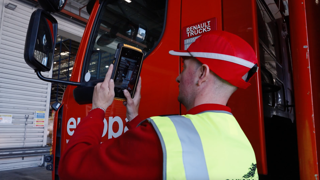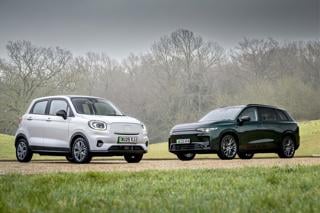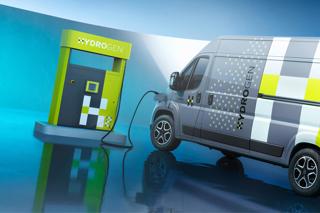
This year marks the 15th anniversary of the launch of the BBC’s iPlayer and the 10th anniversary of Netflix in the UK, both landmark events that have changed the face of television viewing.
Frequently cited as prime examples of thevrevolution in consumer attitudes away from ownership (videos and DVDs) to usership (on-demand streaming), the meteoric rise of the two services has parallels in the automotive world.
Ownership models are shifting from purchase to leasing and, potentially, subscription as customers seek the same all-inclusive convenience from motoring and travel that they enjoy in other areas of their lives.
Hoping to capitalise on this trend, vehicle manufacturers have a natural interest in business models with the potential to generate revenue and profit throughout the life of a vehicle, rather than just from its sale. This has spurred OEMs to invest heavily in their financial services operations, developing products that seem light years away from the historic provision of loans to support customers to buy their cars.
To stretch the Netflix analogy even further, the streaming service has shown the importance of producing and controlling unique content – in the automotive world it’s the vehicle manufacturers that produce such content. Their challenge is to deliver it to customers in the format they want via the easiest possible interface.
At last count, manufacturer-captive leasing companies account for five of the largest 15 fleets in the FN50 and vehicle numbers are rising rapidly with the popularity of personal contract hire (PCH).

This year marks the 15th anniversary of the launch of the BBC’s iPlayer and the 10th anniversary of Netflix in the UK, both landmark events that have changed the face of television viewing.
Frequently cited as prime examples of thevrevolution in consumer attitudes away from ownership (videos and DVDs) to usership (on-demand streaming), the meteoric rise of the two services has parallels in the automotive world.
Ownership models are shifting from purchase to leasing and, potentially, subscription as customers seek the same all-inclusive convenience from motoring and travel that they enjoy in other areas of their lives.
Hoping to capitalise on this trend, vehicle manufacturers have a natural interest in business models with the potential to generate revenue and profit throughout the life of a vehicle, rather than just from its sale. This has spurred OEMs to invest heavily in their financial services operations, developing products that seem light years away from the historic provision of loans to support customers to buy their cars.
To stretch the Netflix analogy even further, the streaming service has shown the importance of producing and controlling unique content – in the automotive world it’s the vehicle manufacturers that produce such content. Their challenge is to deliver it to customers in the format they want via the easiest possible interface.
At last count, manufacturer-captive leasing companies account for five of the largest 15 fleets in the FN50 and vehicle numbers are rising rapidly with the popularity of personal contract hire (PCH).
An appraisal of the market by the British Vehicle Rental & Leasing Association (BVRLA) reveals that PCH almost doubled its share of the BVRLA fleet between Q3 of 2017 and Q3 of 2021, from 16% to 30%, with further expansion anticipated.
“The overall PCH market provides the greatest opportunity for growth,” reports the BVRLA’s most recent Leasing Outlook study, which forecast 11% year-on-year growth by the third quarter of this year for PCH, compared with 0.2% growth for business contract hire.
By no means all of these PCH volumes are supplied by captive leasing companies, but with their dealer networks and the online brand presence of carmakers, they are in pole position to capitalise on the trend.
A rapid shift from ownership-based financial products to leasing raises the question of whether leasing is the final destination of a usership-based economy or merely a stepping stone to more flexible solutions, such as subscriptions and pay-on-use car schemes for both business and private drivers.
Volvo Cars has enjoyed considerable early success with its own Care by Volvo subscription service, which accounted for more than 2,500 cars, almost 15% of the manufacturer’s new retail business in its first year.
Conor Horne, Volvo Cars UK head of online sales, says the service is chiming, “with the changing preferences of customers who want a quick, secure and simple process to access a new car”, and is bringing new customers to the brand – 91% of Care by Volvo drivers are conquest sales.
Flexing the fleet
From a fleet perspective, subscriptions enable companies to flex their fleet size based on demand, reacting swiftly to changing business conditions, a quality appreciated particularly by small-to medium−sized enterprises (SMEs), according to Boston Consulting Group.
It says OEMs hold the significant advantage of being able to acquire vehicles at cost, with affordability high on customer agendas, although it also warns that subscription prices have to compete with buying, leasing and other forms of mobility like ride-hailing and ride-sharing.
This view highlights the increasingly blurred lines between vehicle supply, finance and access arrangements.
“With the market evolving faster than ever and people’s requirements for mobility varying so vastly, leasing companies need to provide solutions for every type of employee, whether that be long-term contract vehicles, through to short-term rentals and B2E (business to employee),” says Stuart Cunningham, head of corporate & international sales at Alphabet.
These requirements reflect the changed nature of working practices in the post-lockdown world, with hybrid models of home and office work reducing travel demand and mileages, and increasing the need for more flexible solutions. Cunningham adds:
“Rental and pool vehicles offer great options for businesses that don’t require travel 100% of the time and the sharp uptake in such products has been clearly evident across our AlphaRent and AlphaCity offerings these past few years.”
It is no surprise, therefore, to see OEM-owned finance houses back several potential outcomes in the expectation that the future will see a proliferation of car and travel options rather than a single dominant product, offering services that range from pay-per-minute to lifetime subscriptions.
FCA Bank’s Leasys, for example, views itself as “a pioneer in a new idea of mobility – fluid, integrated and global”, with products ranging from contract hire to peer-to-peer car sharing.
Leasys Miles offers customers the option to pay a monthly rental plus miles travelled beyond a pre-agreed threshold.
Fellow Stellantis Group finance operation Free2move Lease has launched a digital car-sharing product that makes it much easier for employers to run a pool fleet, by giving drivers online booking options and the ability to locate, unlock and drive vehicles using a smartphone. It also holds the opportunity for businesses to recoup some of the costs of a shared fleet by giving employees paid-for access to vehicles at weekends.
Kinto UK, part of the Toyota empire, has also developed mobility solutions for business travel that extend further than the traditional company car to encompass short-term rental, car-pooling and ride-hailing, with subscription, car sharing and mobility offerings in the pipeline.
These models challenge the traditional ratio of one driver, one car and exploit the inherent inefficiency of most cars standing idle more than 90% of the time. But their relevance is currently restricted to certain geographic areas where car ownership is more difficult, due to parking, congestion and emission charges, as well as political air pollution concerns, and where public and shared transport can match the convenience of private car use.
Car share market
Tom Brewer, fleet sales director of Volkswagen Financial Services (VWFS), says: “There is a recognition that the car-sharing market will grow significantly and that is why investments in our own rental car business have been so important and will continue to be so. A traditional rental car company offers huge opportunity in terms of geographical coverage and the gateway to sub products, ride hailing and car sharing. Strategically, there are short-, medium- and long-term benefits to having a car rental business integrated within the group and it gives us the position to capitalise as that market grows.”
The wind is rising in the sails of transport solutions that avoid expensive assets being idle for long periods of the day. The introduction of autonomous vehicles will accelerate this trend.
“We want to have a relationship with the customer in whatever segment they happen to be, and for us to be in control of the vehicle asset so we can take advantage of that across the supply chain, both new and used,” says Brewer.
VWFS already provides subscription offers via partners, but has plans to develop its own service. Brewer says:
“Typically, the people who are accessing that product want a zero-hassle, fully-bundled solution.”
Login to continue reading.
This article is premium content. To view, please register for free or sign in to read it.



















Login to comment
Comments
No comments have been made yet.